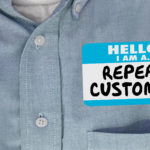You can’t rely on mental math forever.
A POS system, or point of sale system, isn’t just to help business owners calculate how much change needs to go back to the customer. It serves a number of functions from maintaining a log of credits and debits, acting as a terminal for credit and debit card transactions, and more.
It’s an important tool that every business needs, but not every business owner knows how to pick the right one or how much a POS system costs. If you’re picking out your first one or your second or third, these five tips can help you find the perfect POS system for your company.
How Much Does A POS System Cost?
The cost of a POS system varies from company to company. You can find accessories to hook up to your cell phone to act as a POS. You can also look to purchasing a large kit, complete with a tablet, to make due to your business’s needs.
You may also need to know if the POS you’re about to purchase comes with any additional costs. Some services charge a monthly fee to use their software, and others skim a small percentage for credit and debit card transactions. In the end, it’s all about what you get out in the long-run.
POS Features
Not every POS system offer the same features. Are you looking for a cloud-based service? Or are you more comfortable with handling cash? What about mobile wallet payments?
The price of a POS system can be dependent on the features you seek.
Does It Fit Your Industry?
Not every small business needs a POS system. If you’re selling trinkets from your garage, a simple card reader you can plug into your phone would suffice. Or, if you run a thrift shop, perhaps getting a $1500 POS is out of the question.
Look to your market and determine if shelling out cash for a point of sale system is worth the financial investment. If you’re looking for a reliable Oregon POS, EMS has the solution for you.
Ease of Use
Operating a small business is difficult enough, so you want to get a POS system that’s easy to learn. Look for a system that’s easily programmable, can be used by your employees with minimal training, and is portable.
Most of the POS systems available today have additional hardware expansions to allow for more complex tasks. Print out paper receipts, scan barcodes, maybe create a self-service kiosk. Sure, you might have the perfect setup for your business, but what good is it if you can’t improve business efficiency?
Maintenance and Warranty
The cost of a POS system isn’t fixed. As mentioned before, some companies require payment for their software, processing fees, and more. If you’re looking to purchase more than one POS, you may see an increase in a POS software plan.
Before you take the plunge and buy a POS system, ensure you’re getting a great deal. Think beyond how much it’ll cost you in the short-term. Check for warranty services. If you’re spending a hefty amount for a POS, you want to make sure your system is covered if anything should happen to it.
While a POS system cost may vary from company to company, what matters most is what you can get out of it. Budgeting for a POS system is easy once you know what to look for.
If you’re looking to keep your small business secure, these seven tips can help you do just that.

